The Venezuelan government is organizing the first presidential election in the country since 2018, following negotiations between the Venezuelan government and the United States during which the US promised to relieve some sanctions on the South American nation in exchange for a fair and free election.
Controversy As Election Day Looms
While the election is slated for July 28th, numerous complaints from the country’s opposition parties have arisen since the announcement of elections that could delay the vote. Opposition parties claim Maduro’s government prevented the candidacy of several prospective candidates, with figures such as Maria Machado, the opposition’s leading candidate, alongside her original replacement, Corina Yoris.
Machado, who originally won the opposition parties’ primary by 90 percent in October, was barred from running for public office in June due to her support for US sanctions and criticisms against Maduro’s government. Machado also fought against claims that she had participated in a number of corrupt dealings and for her public support of former opposition leader, Juan Guaido.
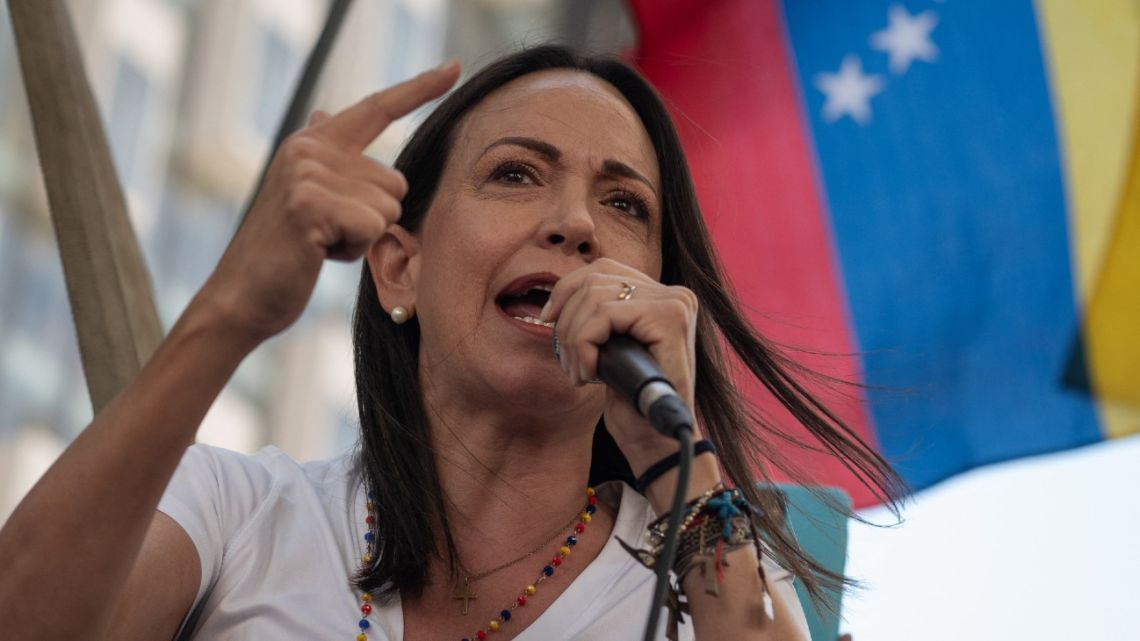
Machado, who ran as a candidate for Vente Venezuela, the country’s leading opposition party, previously stated that if she won the primaries she could pressure the government to allow her running. Ultimately this failed, as the Venezuelan Supreme Court upheld the ban against her in late January after Machado challenged the original ruling.
Following the ruling, the United States revoked a portion of their sanctions relief, reimposing sanctions on Venezuela’s gold mining industry. The US claimed that the numerous bans against political rivals violated the 2023 Barbados agreement, an agreement which was signed in order to promote political rights and electoral guarantees for those wishing to run for office. The agreement outlines several key points, including recognizing the right of political actors to choose their candidates freely and promoting electoral guarantees before the National Electoral Council.
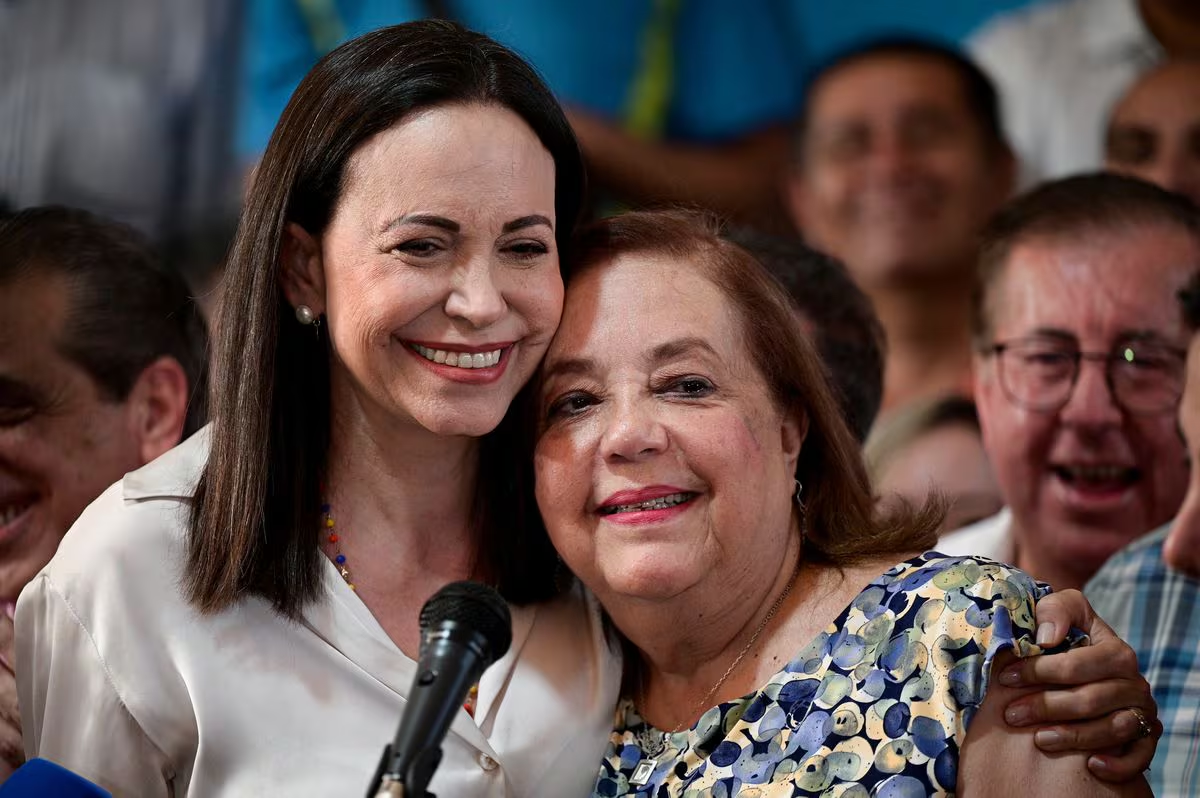
Ultimately, Machado chose a political unknown, Corina Yoris, to take her place as frontrunner in March, days prior to the registration dates for candidates. Yoris, a professor, and former news columnist who has never held public office, would ultimately fail to register in what the opposition claimed was the fault of the government.
The Unitary Platform, a political alliance of Venezuela’s opposition, claimed that Yoris was unable to register with the National Electoral Council (CNE) the night before the cutoff and were unable to reach the CNE’s office due to demonstrations organized by the current ruling party, the United Socialist Party of Venezuela (PSUV).
The Unitary Platform announced the failure to register just one day after the cutoff in a press conference where both Machado and her replacement, Corina Yoris, spoke against the government’s choice to block Yoris from registering. Yoris claimed that the CNE purposely prevented Yoris from registering before stating, “If they [the CNE] deny my right to register, they are denying it to the entire country.”
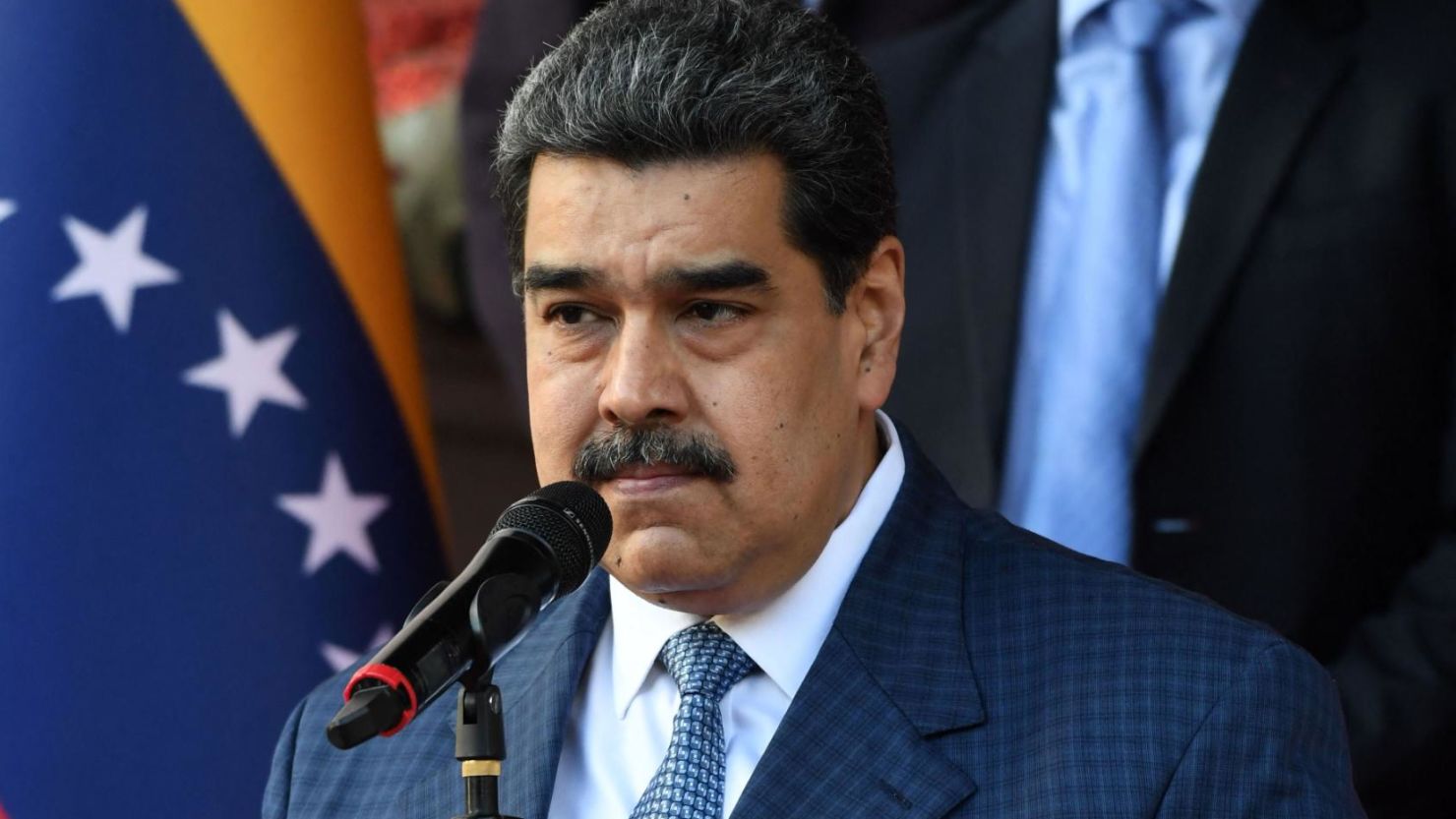
In a bid to offer Venezuela an alternative to Maduro, the Unitary Platform chose to endorse former diplomat Edmundo González Urrutia with the hope of registering another candidate at a later date. This hope would eventually dissolve after the alliance fully endorsed González as their candidate. González, who previously served as the country’s diplomat to Algeria and Argentina, maintains that Machado remains the “the leader of the opposition” and “the leader of this unitary process,” leaving the disqualified politician to campaign in his place.
Prior to the announcement that Yoris was unable to register, arrest warrants against several members of Vente Venezuela were issued on charges of conspiracy to assassinate the President. These warrants followed hot on the heels of the arrest of more than 30 activists and political leaders–including other members of Vente Venezuela–in a move which international aid groups and the United Nations claimed was a deliberate effort to limit the opposition.
In March, the Venezuelan Intelligence Service, Sebin, arrested Machado’s campaign director and regional coordinator, Emill Brandt Ulloa. Just weeks after this arrest, warrants were issued for a number of other key leaders within the opposition party, six of whom fled to the Argentine embassy to apply for political asylum, alleging that the arrest warrants were intended to weaken the party and not for a just cause.
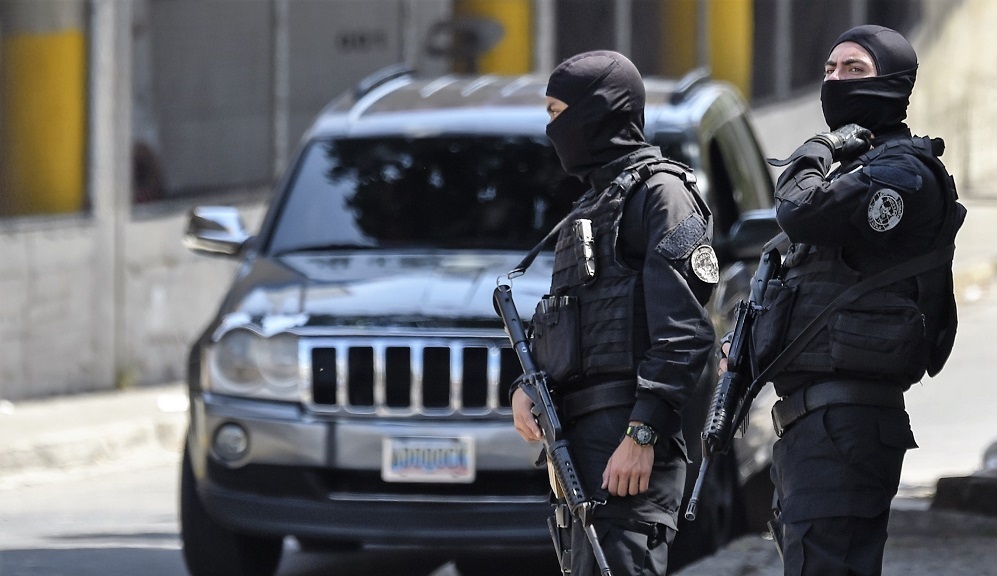
Tensions flared between the Argentine government and Maduro’s regime when workers employed by the state allegedly cut all power to the Argentine Embassy following calls from authorities to surrender those seeking asylum.
“After issuing an arrest warrant, a siege began on the Argentine embassy in Caracas,” said Omar González Moreno, a former deputy and one of the regional coordinators of the party’s electoral command. “They have cut off our electricity. Refrigerators, water, and basic services.”
Gonzalez Moreno further alleged “video evidence” of state workers tampering with “part of the equipment that allows only the residence of the Argentine ambassador in Caracas to be without electrical service.”
The five others who fled to the Argentine Embassy included Magalli Meda, the campaign manager for Machado; Pedro Urruchurtu, the international coordinator of Vente Venezuela; Humberto Villalobos, an electoral expert; Claudia Macero, who is in charge of the party’s communications; and a sixth unnamed person who requested anonymity due to security concerns.
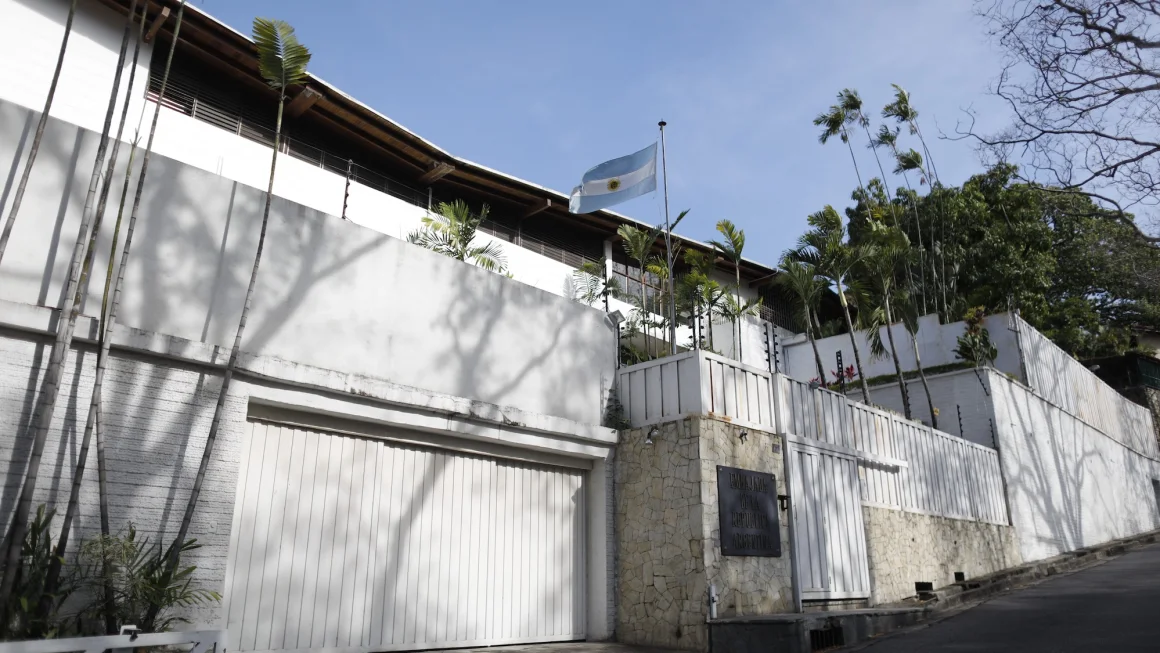
The move was met with concern from Argentine officials, with the government alleging that the cutting of power was a direct violation of the Vienna Convention on Diplomatic Relations.
Following the siege, Argentine and Venezuelan authorities reached an agreement to allow those seeking asylum in the embassy to peacefully leave Venezuela. This agreement would ultimately fall through according the Argentine officials, who claim that the Venezuelan government never issued safe-conduct passes.
Trouble at Polling Stations
Prior to the official disqualification of Machado and arrest warrants for opposition members, a number of reports surfaced alleging acts of violence and intimidation occurred during the opposition’s primaries in October.
In the Guarataro neighborhood of Caracas, the nation’s capital, residents reported gangs of armed men roaming the streets, preventing polling stations from being installed in the area. Shootings in the neighborhood were also reported as voters attempted to reach polling stations to cast their vote.
Habitantes de El Guarataro denuncian que colectivos armados impiden la instalación del centro de votación en este sector de la parroquia San Juan de Caracas. #Primarias2023 pic.twitter.com/7CXgW3oZHr
— Monitoreamos (@monitoreamos) October 22, 2023
In the Candelaria neighborhood, one elderly voter was run over with a car while waiting in the polling line, and further reports stated that tear gas has been utilized at one polling center in the capital.
#22Oct ??2:00pm Una bomba lacrimógena fue lanzada en los alrededores del centro de votación de la parroquia Santa Rosalía de Caracas, afectando a adultos mayores que esperaban su turno para ejercer el voto. pic.twitter.com/tBKjqzq8uA
— El Tequeño (@ElTequeno) October 22, 2023
Despite these reports, Jesus Casal, the President of the National Primary Assembly–the governing body overseeing the primaries–assured the media that “citizens are voting in peace.”
Violence is not the only reported offense against voters, as those heading to the polls in the San Bernardino neighborhood located within the capital were barred from voting after officials found booths locked with “school locks and crazy glue.” In Maturín, the state capital of Venezuela’s Monagas state, voters reported the power being cut at a voting station, delaying attempts to submit their votes.
“[Four] thousand people came to vote. As of 10 a.m., 507 people have voted,” one voter stated on X.
Despite reported violence and sabotage, Bower Rosas, the coordinator of the Vente Nueva Esparta movement, a pro-democratic party that disavows socialism, assured the media that measures were undertaken in order to ensure a fair election.
“We are demonstrating to the citizens that we are working toward electing a suitable person who can lead the destiny of the country,” Rosas told Reporte Confidencial. “We knew what could happen today, and that’s why we already had plan B, and plan B is already working.”
The Parties of the Election
While the Unitary Platform, alongside the ruling United Socialist Party of Venezuela which President Maduro belongs to, are the main contenders for the Presidency, a number of other candidates have also registered such as Luis Eduardo Martínez who is running under Democratic Action, Antonio Ecarri under the Pencil Alliance, Daniel Ceballos under the Country Renewal and Hope Assembly, and Benjamín Rausseo as an independent.
The Enduring Rule of the United Socialist Party of Venezuela
The United Socialist Party of Venezuela (PSUV) is Venezuela’s premier political party. It has remained in power since its merger with several other political parties under the presidency of Hugo Chavez in 2007. Following the election, Chavez, who won the 1998 Presidential election with 51 percent of the vote, held a national referendum to abolish Congress and the judicial branch, replacing these branches of government with what Freedom House called “a parallel government of military cronies.”
With this establishment of power, Chavez’s party successfully consolidated power before further establishing themselves as the country’s main party with the formation of the PSUV. The party currently holds 219 out of 277 seats in the National Assembly, with an additional 34 seats belonging to allied political parties under the Great Patriotic Pole. This historic majority allowed both Chavez and Maduro to operate practically unopposed for their respective presidencies.
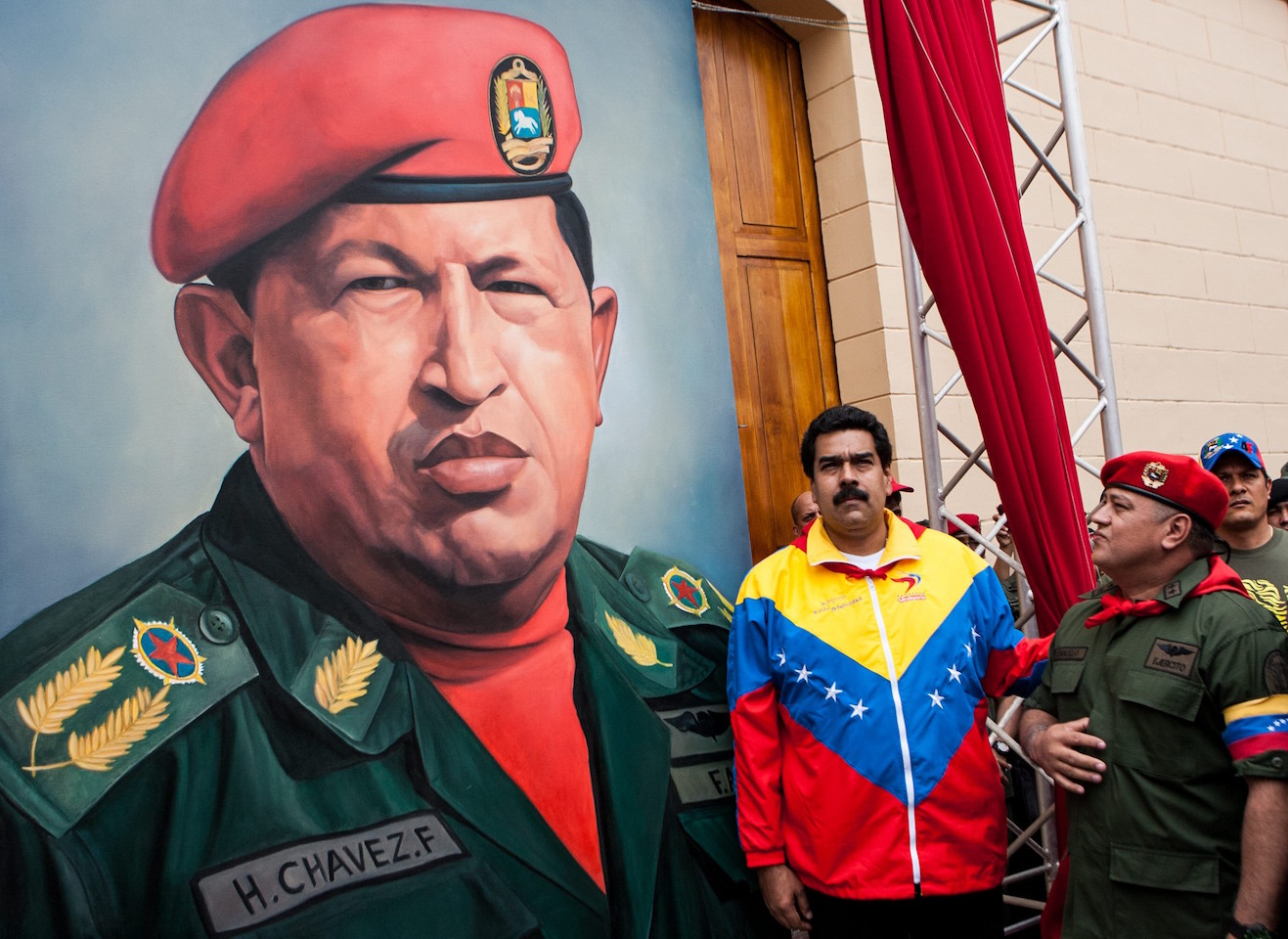
The PSUV lost their majority following the 2015 elections, which saw the party’s seats decrease from 96 to a mere 55 seats of the 165 total seats at the time. Meanwhile, Venezuela’s leading opposition alliance, the Democratic Unity Roundtable (MUD), won 109 seats. This newly acquired power would be of little benefit to the MUD, as proposed laws were denied by the Venezuelan Supreme Court, held by the PSUV. This, combined with elections just two years later for the Constituent National Assembly, a newly formed body of the government which was founded to rewrite the Venezuelan Constitution, further limited the MUD’s power. Lawmakers belonging to the MUD would boycott the vote, refusing to run for the newly founded body’s elections.
This move would ultimately leave the PSUV in power in the newly founded assembly which declared itself the sole government branch with supreme political power, banning the National Assembly from undertaking any action which could be deemed as interfering with the assembly. A week later, the assembly gave itself further power to pass laws alongside the ability to override the National Assembly on issues concerning “preservation of peace, security, sovereignty, the socio-economic and financial system,” before stripping all legislative powers from the National Assembly the next day on claims that the National Assembly failed to prevent “opposition violence” during the 2017 Venezuelan Protests.
The PSUV would regain their lost seats in the 2020 elections, which the MUD alongside other opposition parties boycotted due to the government’s previous actions against rival political parties.
The Beliefs of the PSUV
The PSUV states the primary purpose for the party is the “construction of Bolivarian Socialism, the anti-imperialist, anti-capitalist struggle and the consolidation of Bolivarian, participatory and leading democracy, through the recognition and strengthening of Popular Power,” according to the second article of the party’s statutes. In the same article, the party declares it has a duty to support foreign communist and socialist governments “in order to end capitalism.”
The party further recognizes the beliefs expressed by Simon Bolivar, Simon Rodriguez, and Ezequiel Zamora, key figures in both Venezuelan and Latin American history. The party further supports Liberation Theology, a belief system structured around the liberation of those oppressed by both societal and economic hardships which was originally founded and upheld by a number of Catholic priests in the mid- to late-20th century.

The party is constituted as a socialist party, affirming socialist society as the only alternative to overcome the capitalist system. It takes the principles of scientific socialism, Christianity, liberation theology, all critical and humanistic universal thought, equity and gender equality, and the ethical obligation to build a respectful model of life and the motherland that guarantees the survival of humanity.
Most notable is the introduction of what is deemed the Bolivarian Revolution which began under the presidency of Hugo Chavez. The revolution seeks to remove all forms of external “imperialistic” influences across Latin America and draws firm ties to Simon Bolivar, the movement’s namesake.
A Brief Look Into the Bolivarian Revolution
The Bolivarian revolution began with Chavez redistributing land from corporations and wealthy landowners to poor Venezuelans alongside nation-wide food distribution campaigns and an effort to provide vaccination for Venezuela’s most vulnerable populations. Furthermore, Chavez began the nationalization of essential Venezuelan industries, such as the nationalization of the Spanish-owned Bank of Venezuela alongside the country’s oil industry, a key source of income for the country.
Chavez also distanced the country’s relationship with the United States, arranging a number of deals with the Russian government with both oil and weapons shipments being arranged between the two. The two launched joint military exercises in both Venezuela and the Atlantic Ocean, raising concerns from US officials.
This alignment with Russia, alongside the country’s historic support for communist guerilla groups in Colombia such as the Revolutionary Armed Forces of Colombia (FARC) and the Colombian National Liberation Army (ELN) would lead to American officials characterizing the Revolution as “a hostile and confrontational posture toward the United States.”
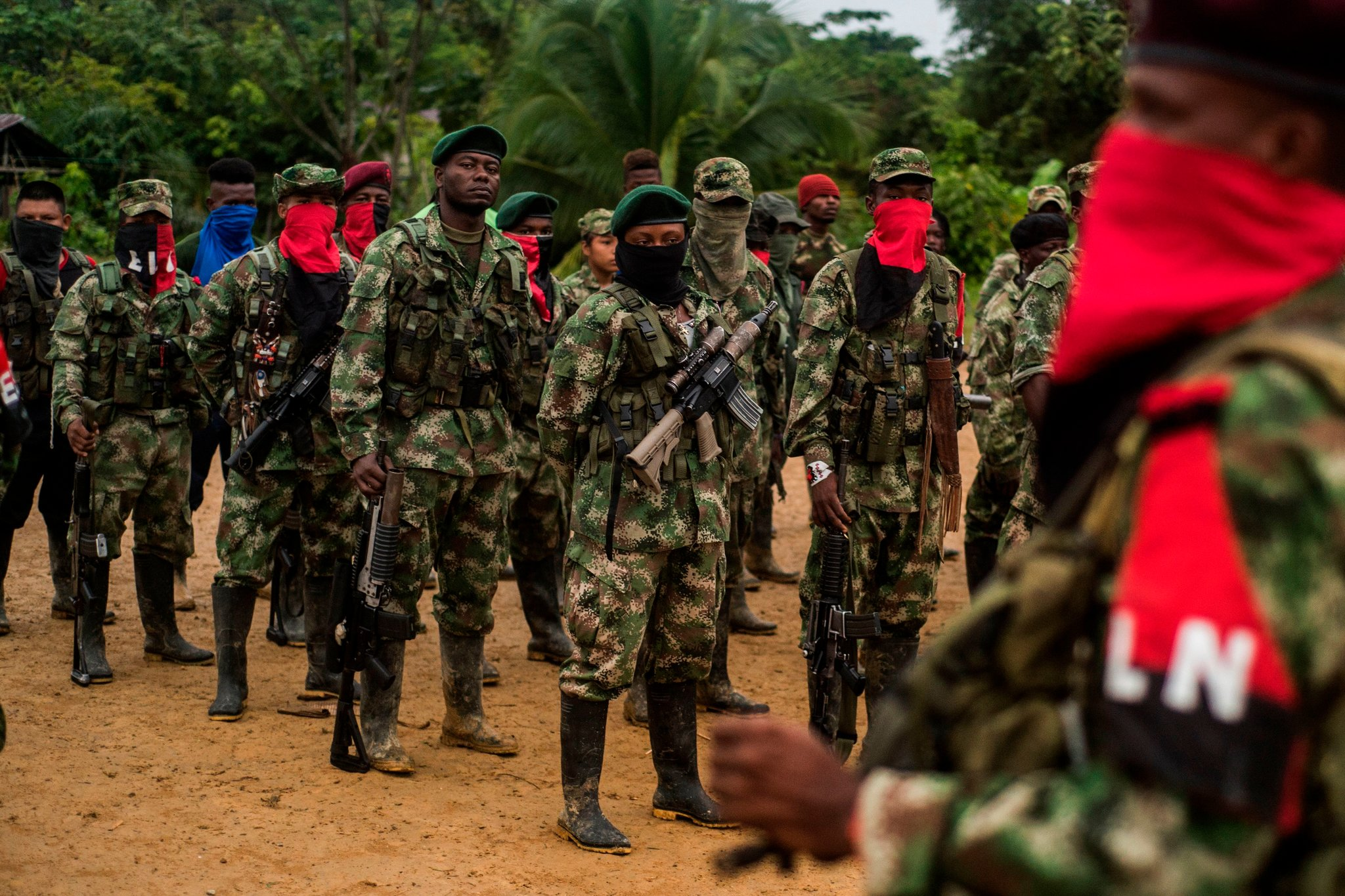
Venezuela operated as a key location for both the FARC and the ELN with both groups crossing the Colombian-Venezuelan border to resupply, receive training, and avoid reprisals from the Colombian military and right-wing paramilitary groups. Not only did this support destabilize and aid communist groups in Colombia, the FARC’s presence provided a number of Venezuelan officials with a chance to increase their incomes, with a number of military officials allegedly assisting in the smuggling of cocaine and other narcotics into the United States.
One former General, Cliver Alcala, who was convicted of arming the FARC in early April alleged that his arms connections with the FARC was at the behest of Chavez. The smuggling of narcotics had allegedly been in connection with several other military leaders alongside President Maduro. Alcala denied smuggling narcotics by citing his alleged meetings with members of the CIA in 2017 and 2020 in an attempt to plan a coup of Maduro.
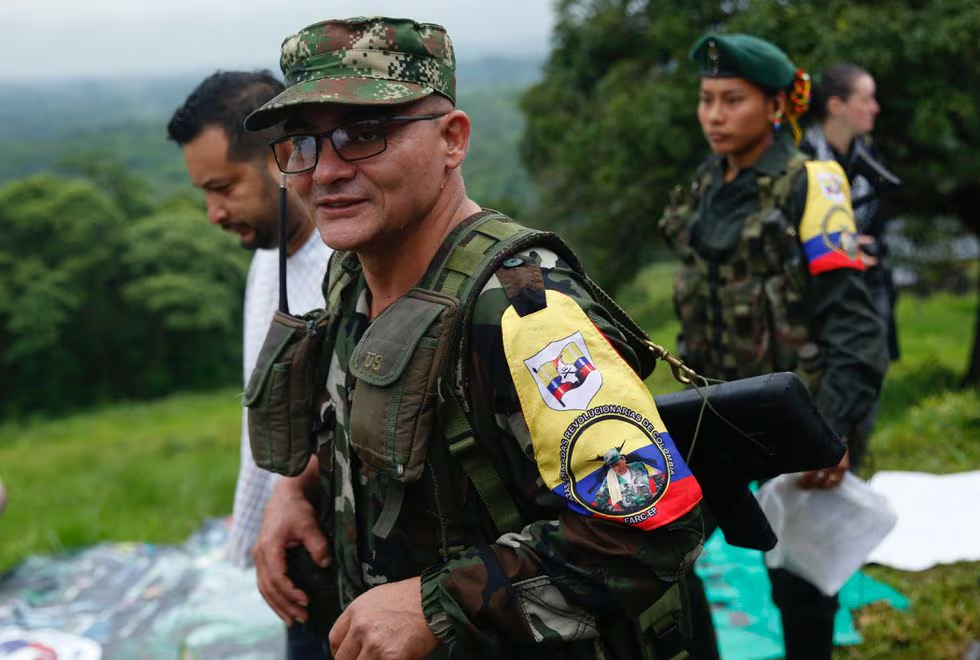
The FARC’s Second Marquetalia faction alongside the ELN continue to have a number of criminal operations in Venezuela, which act as a key source of income for the group’s operations. These operations include both narcotics production and smuggling as well as illegal mining, a number of criminal operations that especially affect South America due to the continent’s large material wealth and security crises.
Following the increased cooperation with Russia alongside the support for armed groups, the United States reactivated the Fourth Fleet belonging to the Naval Southern Command in 2008, a move which led Chavez to deepen ties between Venezuela and Russia fearing that the US was planning on invading the South American nation.
Chavez would die following a long battle with cancer in 2013, leaving his second-in-command and successor Nicolas Maduro to take the reins. Maduro won the 2013 presidential election by a mere 1.5 percent, winning a total of 50.62 percent of the vote. Maduro followed Chavez’s established legacy, maintaining that the United States were imperialists and Venezuela is resisting subjugation.
This belief would carry over to the suppression of political opposition, activists, and influential figures within the country, with many arrested on claims of planning assassination attempts against Maduro or conspiring against the government.
The Unitary Platform
The Unitary Platform is a coalition between Venezuela’s leading political opposition, with many members previously affiliated with the MUD. The Unitary Platform consists of political parties, trade unions, retired military personnel, and other social leaders who were previously left out of the MUD.
The Unitary Platform’s stated aims are to address the current economic and humanitarian crisis in Venezuela, restore the governmental structure prior to the rise of Maduro and Chavez, promote free and fair elections, and begin a process of “national reconciliation.”
While previous attempts to dislodge Chavez and Maduro’s hold on power failed, the presidential election offers a new dawn for Venezuela’s political opposition as the Presidential Office grants the holder a great deal of power.
Vente Venezuela
Vente Venezuela, one of the leading parties in the Unitary Platform and frontrunner Machado’s party, describes itself as a centrist party that bridges the gap between moderate leftists and the moderate right. While the party was originally formed in 2012, the party would not gain notoriety until the announcement of elections in 2024 and Machado’s subsequent victory in the opposition’s primaries.
“It [the party] is a national alliance … with the sole purpose of restoring the Republic in the shortest possible time … It is made up of all the political, social and citizen forces that share the same vision of emergency and a single strategy: the replacement of a tyrannical regime with a democratic Republic,” the movement stated on its website in 2017.

The party was an offshoot from the MUD following the latter’s decision to take part in local elections for governors in a move which Machado previously opposed.
“We stood with the people of Venezuela at the moment when the Unity [the MUD] left the route we called for, that of citizen rebellion, and decided to participate in elections [ for governors] called by the constituent assembly,” Machado told El Nacion.
Machado has further stated she supports “popular capitalism,” an economic policy popularized under British Prime Minister Margaret Thatcher. Machado previously stated that the state should allow for the free market to create opportunities for Venezuelan workers rather than relying on the state itself to provide such opportunities, while maintaining social welfare programs such as Social Security.
Furthermore, Machado stated that while she believes in a free market economy, the government should continue to maintain some control over the market in order to prevent monopolies alongside “guaranteeing the quality of goods and services.”
While Machado has been prevented from running for the presidential elections, the party has fully endorsed Edmund Gonzalez Urrutia as their candidate, preserving the party’s ability to win the office.


